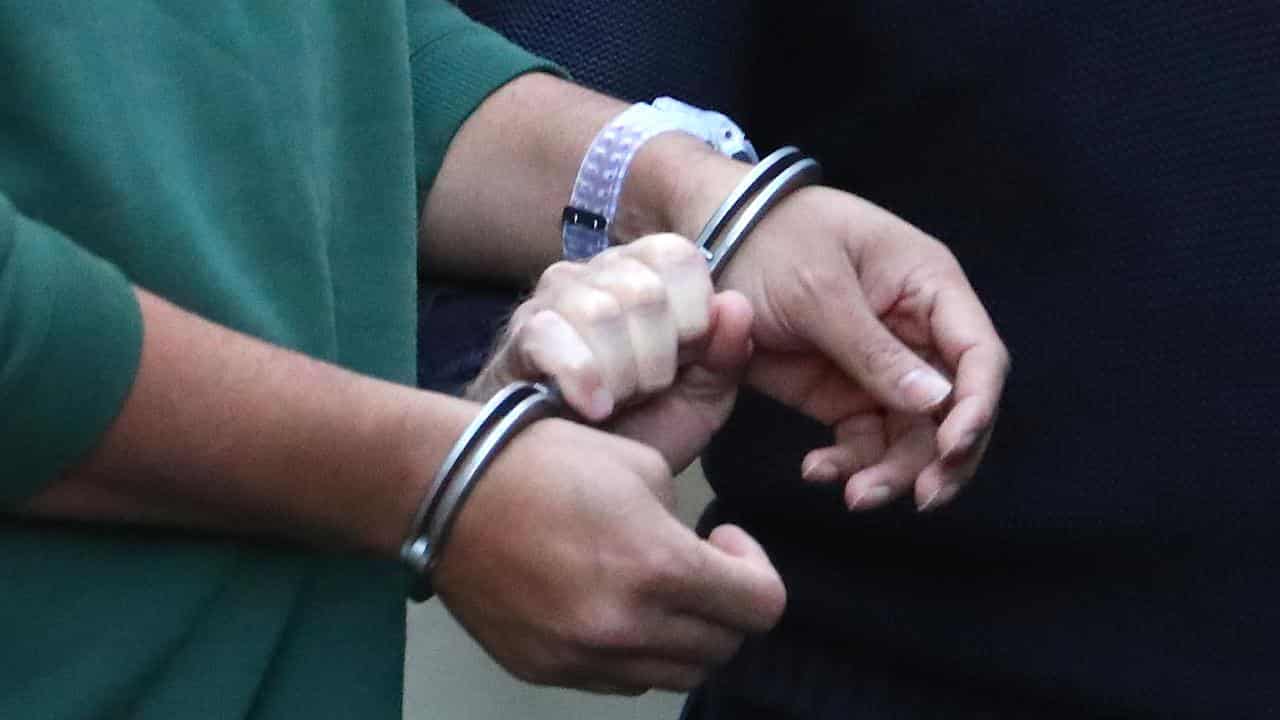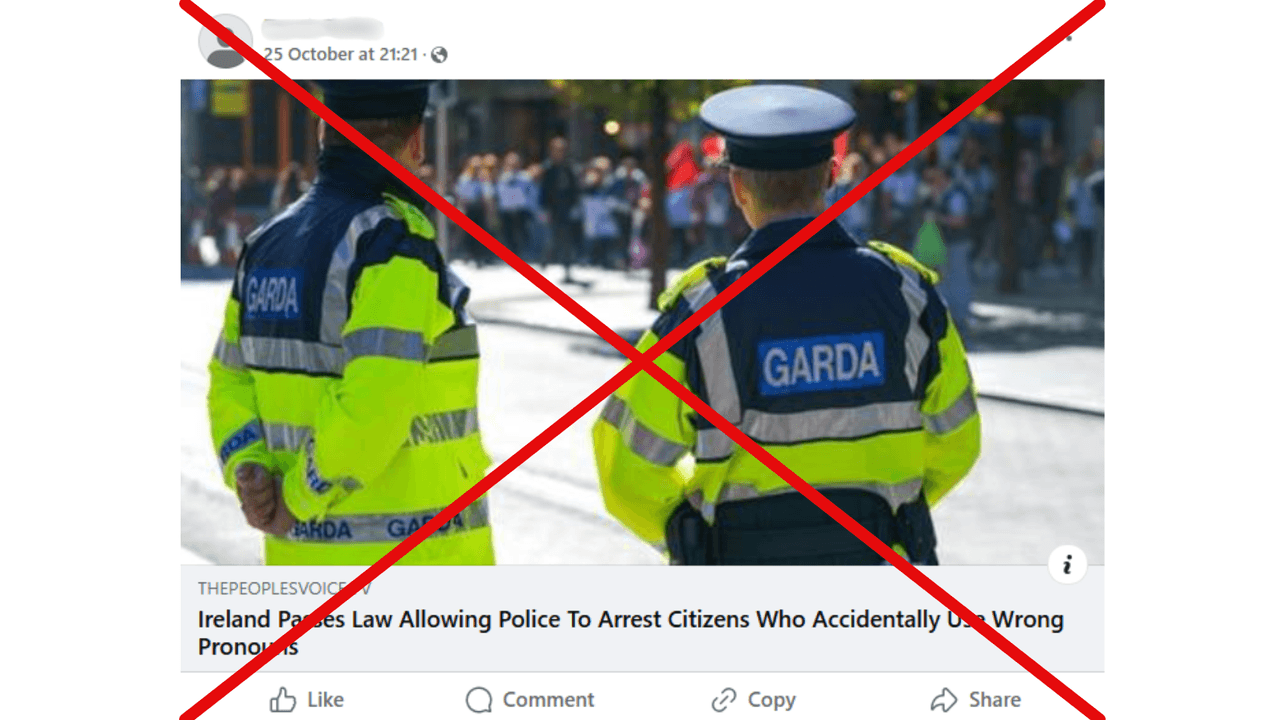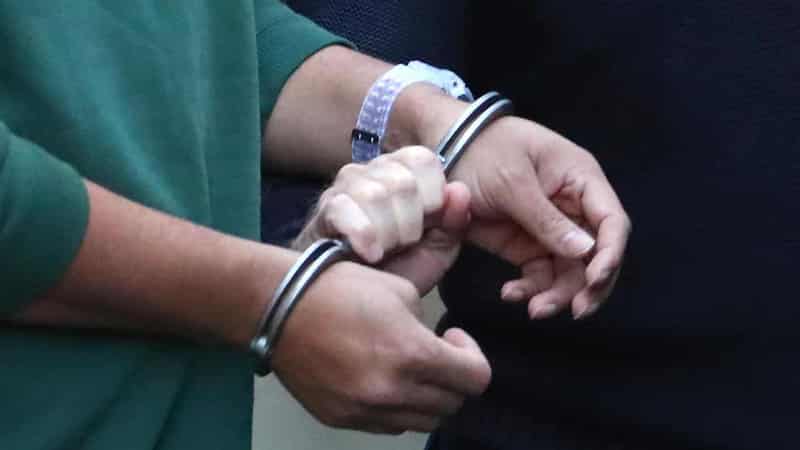
What was claimed
You can be arrested for accidentally misgendering someone in Ireland under a new law.
Our verdict
False. Accidentally using the wrong gender is not covered under new hate crimes legislation.
AAP FACTCHECK – New hate crime laws in Ireland have sparked false claims on social media that you can be arrested for accidentally misgendering someone.
Irish legal experts say the law only applies where there is intent to cause harm or social disruption and does not cover accidentally referring to someone by the wrong gender.
The false claim is made in a series of Facebook posts that share similar text. The posts are being shared by Australian users.
“Ireland Passes Law Allowing Police To Arrest Citizens Who Accidentally Use Wrong Pronouns,” the headline in the photo of one post states.
The post includes a link to an article with that headline from The People’s Voice, a site which AAP FactCheck has debunked multiple times.
The article continues: “The Irish parliament passed a new law on Wednesday, allowing police to arrest citizens who misgender others – even if it’s an accident.”

The law the article refers to is Ireland’s Criminal Justice (Hate Offences) Bill 2022, which passed the Dail Eireann, or Irish lower house of parliament, on October 23.
Irish legal experts told AAP FactCheck the new law could not be used to prosecute people for accidentally misgendering someone.
Luke Noonan, a law lecturer and co-director of the Irish Legal Information Initiative, said the legislation increased penalties for existing crimes motivated by hatred in relation to a protected characteristic, such as race or gender.
But, Dr Noonan said, accidentally misgendering someone is not an offence under Irish law.
He said the law sets the threshold for a hate crime as an offence that requires an intent “to provoke a breach of the peace or being reckless as to whether a breach of the peace may be occasioned”.
“Accidentally misgendering someone would not reach this threshold,” he said.

Fiona Donson, a human rights law expert from University College Cork, explained that the law establishes gender as a protected category, but that this has been twisted by critics to suggest that anyone accidentally misgendering another person could be arrested.
Dr Donson said that any claim suggesting Irish police could use this law to arrest people for unintentionally using someone's incorrect gender was “a completely incorrect representation of the law”.
The article in the post also references the case of former Irish schoolteacher Enoch Burke, whose arrest was the subject of misleading claims debunked by AAP FactCheck.
The Verdict
False – The claim is inaccurate.
AAP FactCheck is an accredited member of the International Fact-Checking Network. To keep up with our latest fact checks, follow us on Facebook, Twitter and Instagram.









